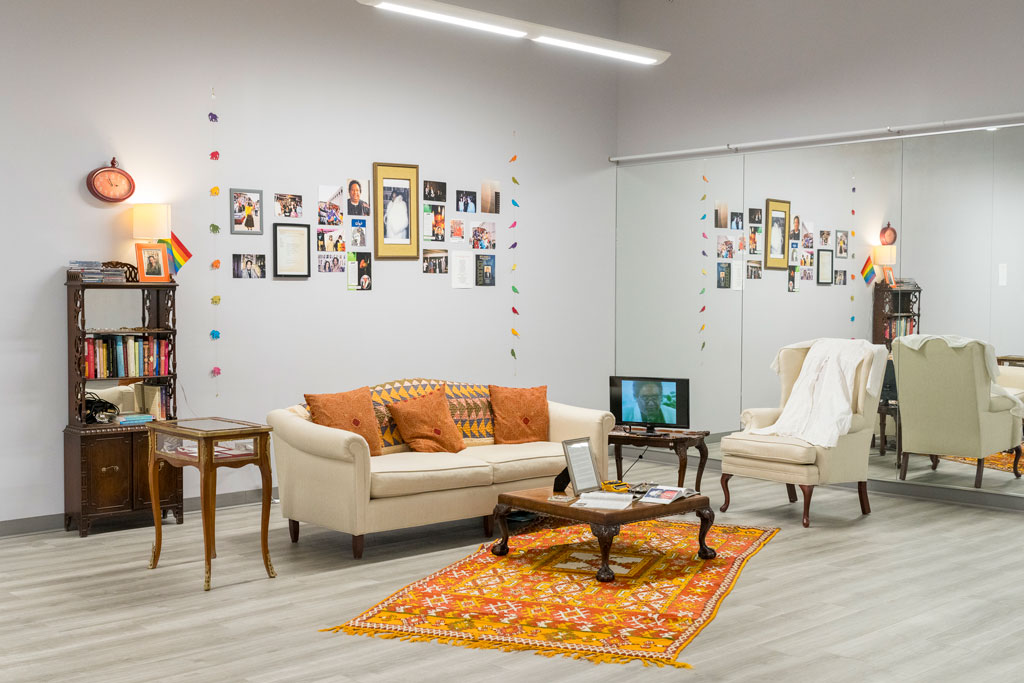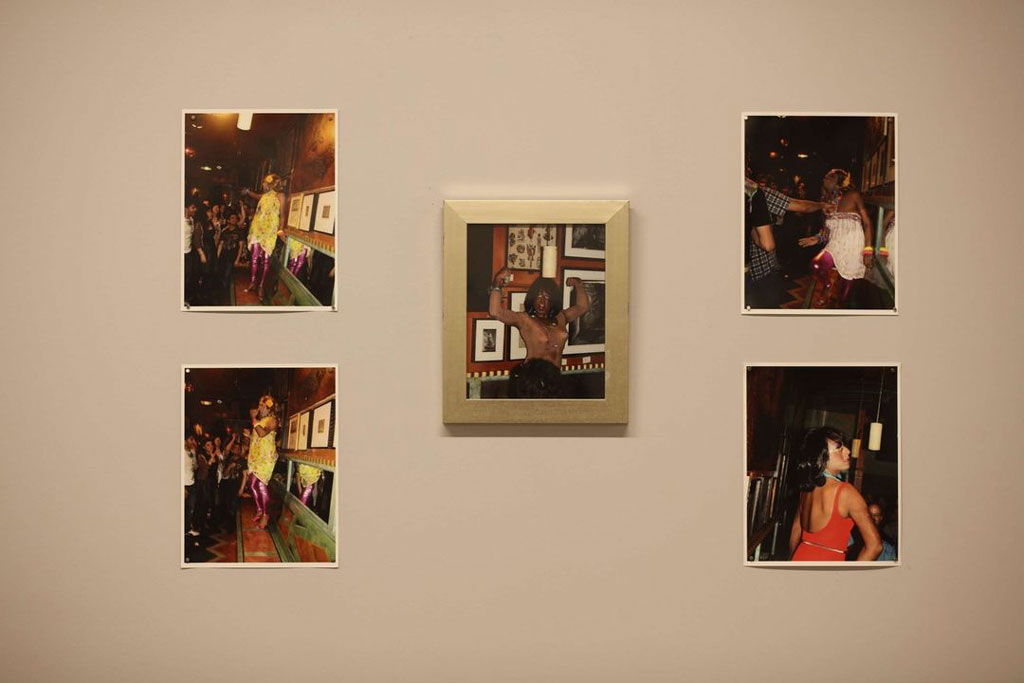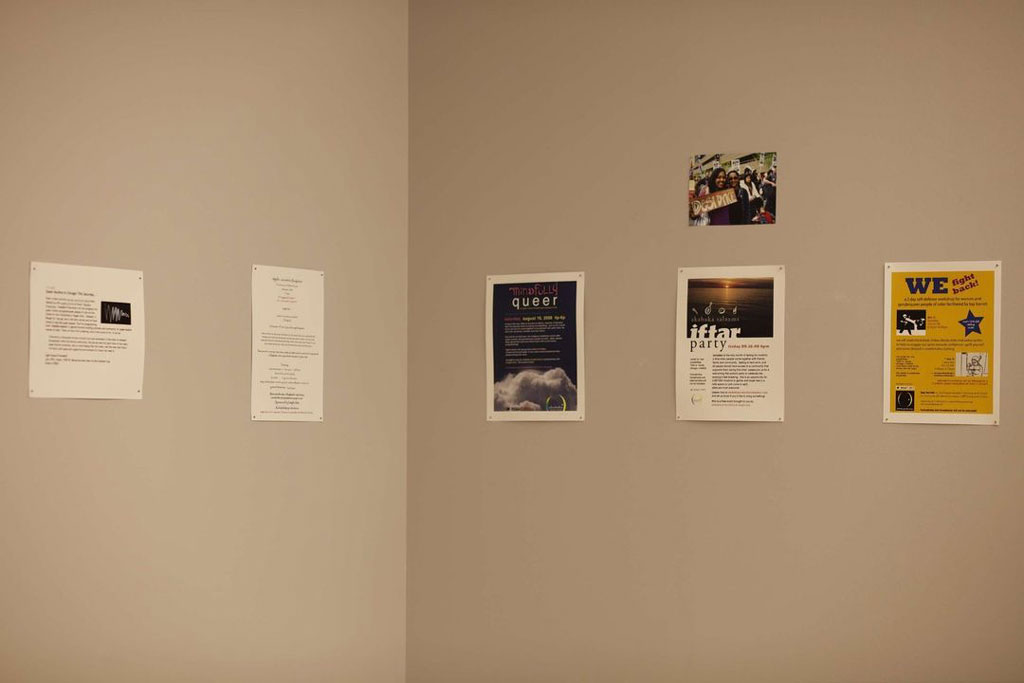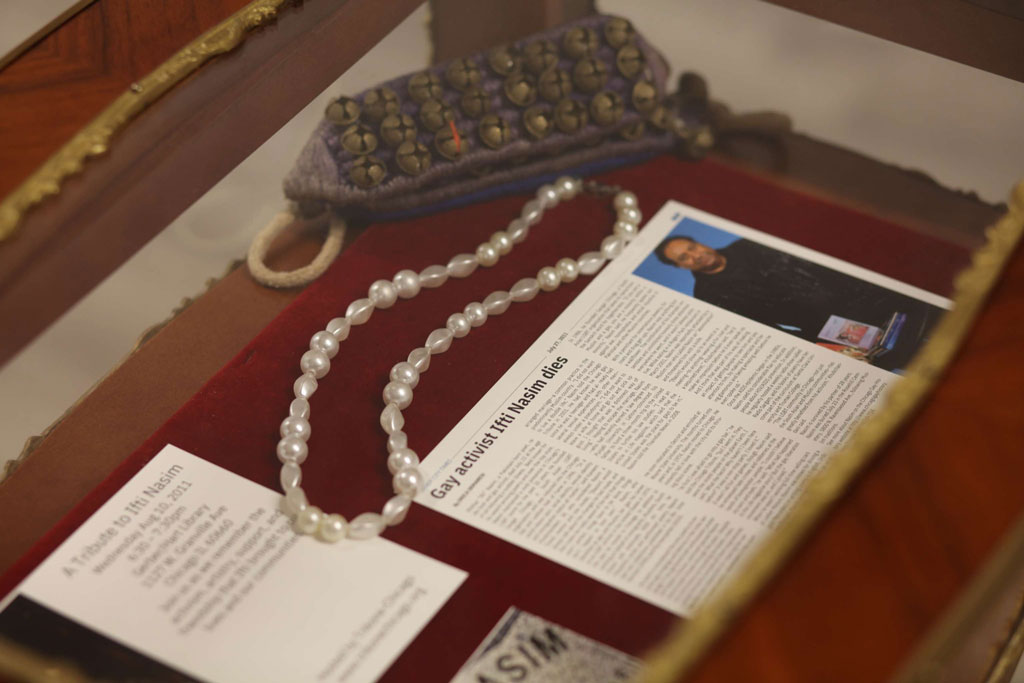Student Theses
People Who Came Before Us
School of the Art Institute of Chicago
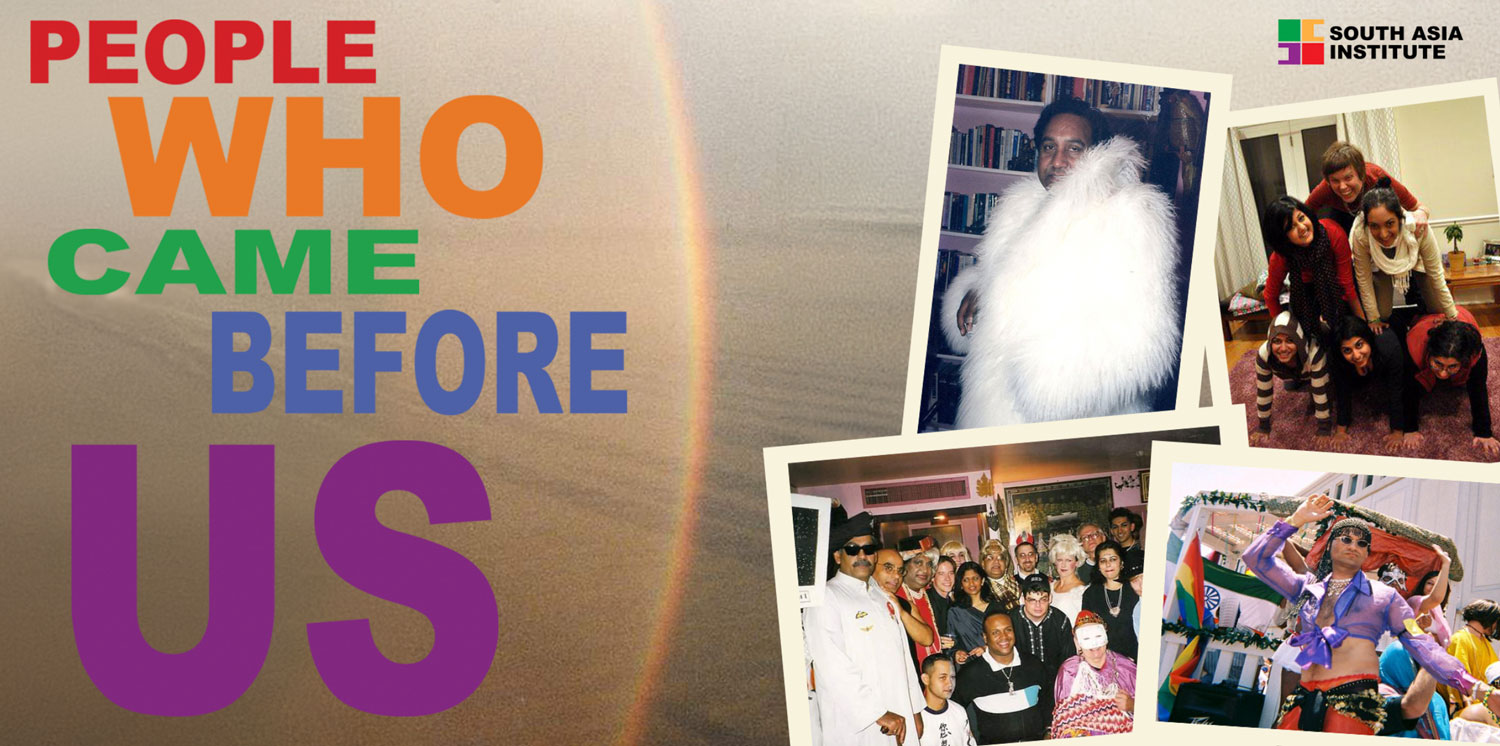
Exhibition summary: Ankit Khadgi is a Nepali-born, Chicago-based queer writer and journalist. During his first year in The LGBTQ+ Intergenerational Dialogue Project, Ankit discovered that there was little accessible information about Chicago’s South Asian LGBTQ+ history. Ankit decided to dedicate his thesis to research and writing this history, and is currently turning his thesis into a book. In June 2024, Ankit curated a public exhibition in June 2024 at Chicago’s South Asia Institute based on his thesis research.
This “archival exhibition” is an attempt to disseminate and educate audiences about the rich contributions of South Asian LGBTQ+ activists and organizers who have actively organized and created spaces for each other in this city.
This exhibition serves as a visual repository to remind generations of Chicagoans of the long history of South Asian LGBTQ+ activism in the city and how the generations that came before us supported and stood by each other even when they did not have access to resources, knowledge, and power.
Lastly, this exhibition through a diverse array of archival materials such as photos, videos, flyers, and personal memorabilia, complemented by engaging sit-and-learn installations, offers a unique visual journey into the diverse history of Chicago’s South Asian American LGBTQ+ communities and their numerous community building initiatives.
By reimagining how LGBTQ+ history looked visually, this exhibition not only educated current generations but also imparted a crucial history lesson for future generations to carry on the legacy and resilience of the people who came before us.
Ankit’s exhibition was featured in South Side Weekly in July 2024.
Queering Form: Vulnerability Through Dialogic Oral Storytelling
School of the Art Institute for Chicago

